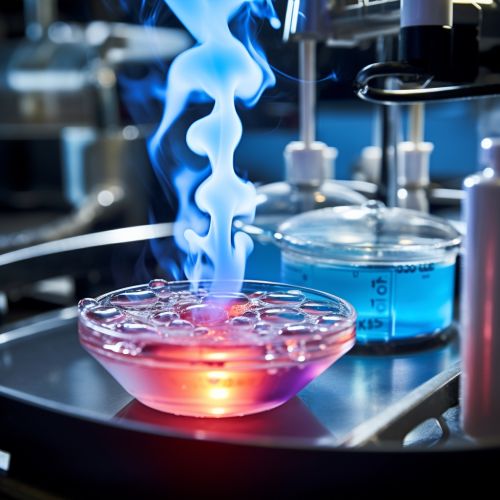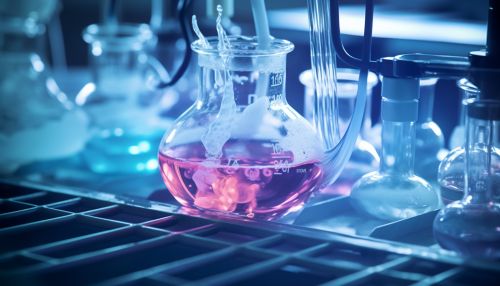Redox reaction
Introduction
A redox reaction, short for reduction-oxidation reaction, is a type of chemical reaction that involves a transfer of electrons between two species. An oxidation-reduction reaction is any chemical reaction where the oxidation number of a molecule, atom, or ion changes by gaining or losing an electron. Redox reactions are common and vital to some of the basic functions of life, including photosynthesis, respiration, combustion, and corrosion or rusting.
Oxidation and Reduction
In a redox reaction, the oxidized species loses electrons and is therefore said to be "oxidized", while the reduced species gains electrons and is said to be "reduced". These reactions always occur in pairs such that one species cannot be oxidized without another species being reduced. This is a direct consequence of the law of conservation of charge.
Oxidation State
The oxidation state or oxidation number, is a measure of the degree of oxidation of an atom in a substance. It is defined as the charge an atom might carry if the molecule or ion were to break up. Calculation of oxidation states is often a simple process, but there are exceptions and it requires understanding of the bonding in the molecule.
Redox Couples
A redox couple is a reducing species and its corresponding oxidizing form, e.g., Fe2+/Fe3+. The species involved in redox reactions are often in a dynamic equilibrium with each other.
Balancing Redox Reactions
Redox reactions are balanced using the oxidation state method or the half-reaction method. Both methods have their own advantages and disadvantages, and are used depending on the circumstances.
Redox Reactions in Biology
Redox reactions play a crucial role in biology, with important examples being photosynthesis and cellular respiration. In photosynthesis, water is oxidized to oxygen, while in cellular respiration, glucose is oxidized to carbon dioxide.
Redox Reactions in Industry
Redox reactions are also widely used in industrial processes. Some examples include the production of sulfuric acid, nitric acid, and the refining of mined ores.
Redox Reactions in the Environment
Redox reactions in the environment are important in several geochemical and biochemical processes. They play a key role in the cycling of elements such as carbon, nitrogen, and sulfur.
See Also


